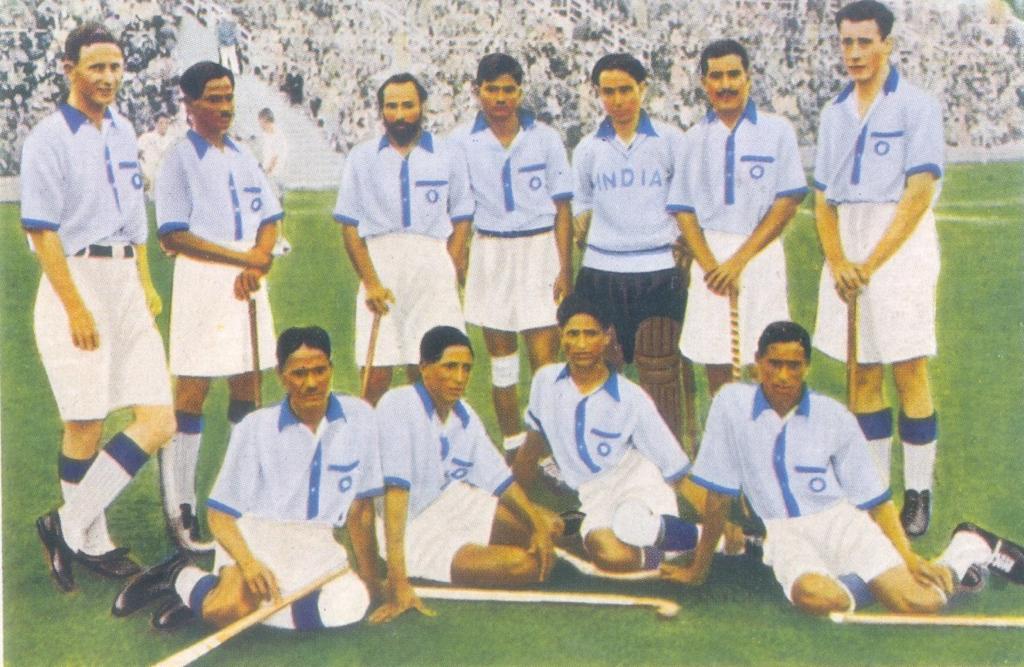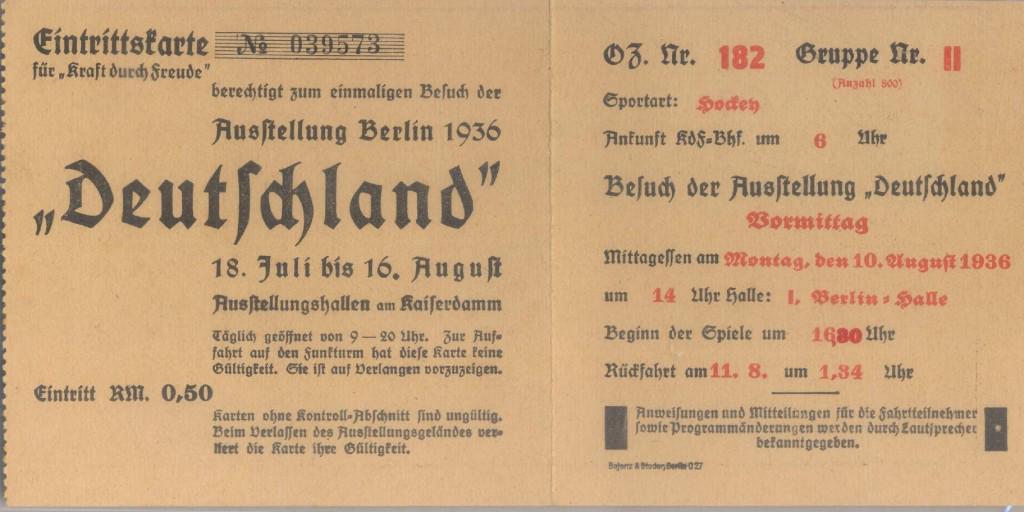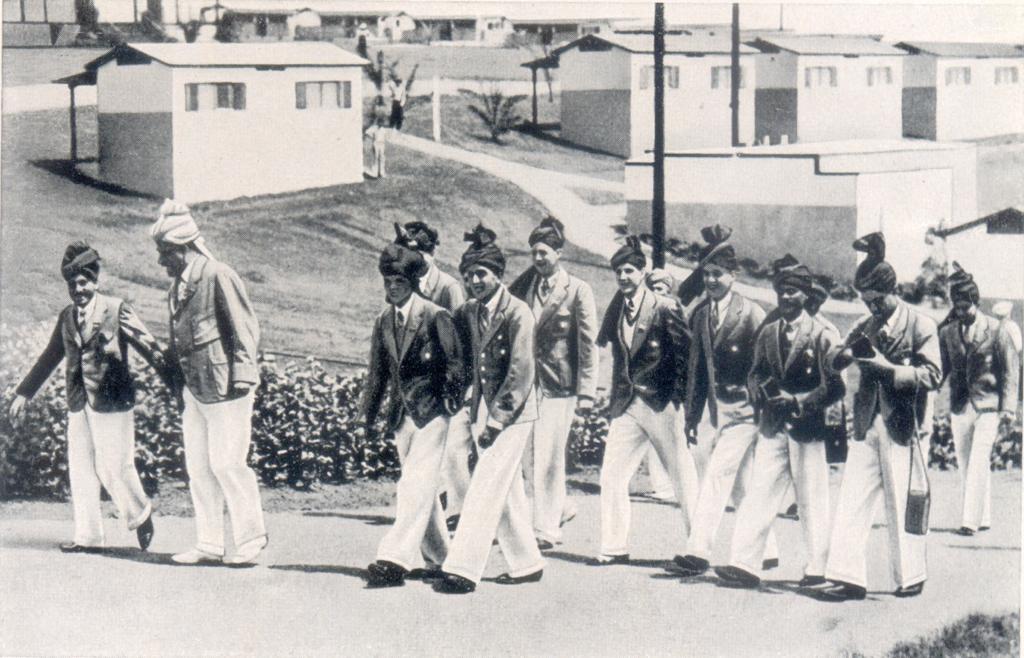
On Dhyan Chand’s birthday this is a special tribute to the legend who united India in a manner that few have ever been able to do. His name and aura had spread far beyond the Indian shores and despite having come from the humblest of backgrounds, he was an Indian dream come true uniting people in their aspirations and pursuits. Through hard work and discipline, he made Indian sport a toast of the world and in doing so accorded every Indian a sense of self respect and pride. His multiple Olympic gold medals was speaking out one language- that we can. India can.
Here are four stories from Dhyan Chand’s career that helps us celebrate the legend and speaks out one language- United India through Sport.
- ‘CAN I SEE MY TROUSERS IN THE SUN’: Dhyan Chand and the spirit of India
Winning the first gold medal in 1928
Men’s hockey first appeared at the 1908 Olympic Games in London. It reappeared in Antwerp in 1920, returning to stay from the 1928 Amsterdam Games onwards.
The Indian team, which reached London on 30 March 1928 was put up in a pension at South Kensington and skipper Jaipal Singh who was a student in Oxford then found Dhyan Chand, a Lance Naik in the Indian Army, a man of incredible talent. Dhyan Chand, Jaipal states “…was humble. He had only one pair of trousers. I took him to Austin Reed on Regent Street. We went downstairs. Trousers galore were shown. ‘Can I take them upstairs and see them in the sun?’ That finished me.”
Dhyan Chand eventually scored 14 of India’s 29 goals in Amsterdam. And when the Indians trounced Holland 3–0 in the final, the press back home went wild. There was an entire report titled ‘How India Won Honors’ and went on to suggest that 40,000 people went into raptures over the brilliant exhibition of hockey displayed by the Indians in the final.
It was in Amsterdam that the legend of Indian hockey was created. Soon after the win, the Viceroy, Lord Irwin, sent a telegram to the team manager B. Rosser. In London, the victory became a source of great nationalist celebration for the Indian community. Indian women organized a tea party in the team’s honour and presented them with turbans on their way back. They were also entertained to lunch at Veeraswamy’s by Dr Paranjpe, a member of the Indian Council. And when the team reached Bombay, it was welcomed by a huge throng of adoring fans. Mole Station overflowed with a wildly cheering crowd trying to get a glimpse of the new heroes. In the audience was Dr G.V. Deshmukh, the Mayor of Maharashtra, who was there to accord the team a civic reception, and a representative of the Governor of Mumbai, who sent a congratulatory message. Sport had started to unite the country and capture national imagination under Dhyan Chand like never before.
- Nowadays I hear of the princely comforts provided for national teams traveling overseas! When we used to travel, the name of our country and the game were the only two things that mattered. —Dhyan Chand on India’s title defence at the 1936 Berlin Olympic Games.
In fact, on the way to the Games when the boat in which the Indians were traveling docked at Aden the Indians practiced full throttle in the four hours they had at hand. And this was only possible because of the aura of Dhyan Chand. Soon after arrival in Aden the visitors went looking for a hockey ground and found the regimental training field of the 5/14 Punjab Regiment, which was then stationed there. Members of the regiment, who had no prior knowledge of the arrival of the Indian Olympic team, were puzzled but elated at suddenly seeing their countrymen. Once the nets were put up, the Indians asked the officer present if the ground could be used for practice. An unnamed Indian player later recounted to a newspaper reporter that at first, ‘He hesitated but as soon as he discovered we were the All-India team and that Dhyan Chand was with us…he allowed us to play.’ The name of Dhyan Chand worked like a charm and once the regiment learnt of the team’s arrival the bugle was sounded; in five minutes the entire battalion came out of its barracks to watch the players. It was a surprise gift for them and many of the subedars and privates who knew Dhyan Chand were pleased to see him in Aden. It was an impromptu Indian reunion united through the powers of sport. In fact, the officers in the battalion felt embarrassed because Dhyan Chand and his team had come without prior notice and hastily tried to put together a civic reception for the world champions.

- Standing up for a cause
In Berlin the Indians under Dhyan Chand carrying the flag created a stir at the opening ceremony by not offering the raised-arm salute to Hitler during the march past. The Indians were the only contingent, apart from the Americans to not perform the raised-arm salute as a mark of respect for the German Chancellor. The Indian decision not to salute Hitler was a grand gesture of defiance, totally in sync with the tenets of the dominant stream of Indian nationalism at the time. The fact remains that it was an act breathtaking in its audacity, in direct opposition to most other contingents at the Games, including the British. Not only did it send a message back home, it had also served in elevating Indian sport for a cause like we had never seen before. The country was speaking out in one voice and Dhyan Chand, a simple lance naik in the army, was its torch bearer.
- Barefoot Dhyan Chand and those ‘Flickering Sticks’: The Hat-trick
Against all expectations of a resurgent German team challenging the Indians, Dhyan Chand and his team crushed Germany 8–1 to win their third consecutive Gold in Berlin in 1936. The title defence was narrated in great detail and was along expected lines. Three sub-headings in the one of the newspapers back home summed up the mood of the match report: India’s Triumph, Science Scores Over Force, and Dhyan Chand in Form.
The match report left little doubt about India’s overwhelming supremacy: ‘In the second half science triumphed over force and the skill of Indian forwards, assisted by a hardworking trio of halves brought goal after goal. The vast crowd rose as one man as the Indians made raid after raid, completely outwitting the home defence with their speed and stickwork and their uncanny accuracy of shooting.
Goal after Goal was scored to the bewilderment of the German side. It was in this game that Dhyan Chand truly came into his own. He had discarded his stockings and spiked shoes and wore rubber sole shoes, which increased his speed manifold. That he was at his best is borne out by the handsome scoreline of 8–1. Dhyan Chand himself scored six goals. The German papers, which until now had been predicting a German gold, were full of praise for the Indians after the final. A correspondent argued that Berlin would remember the Indian hockey team for long. ‘These players, it is said, glided over turf as if it is a skating rink and their flickering sticks had the Japanese, normally so agile, mesmerized.’ The reporter went on to conclude, ‘Nature seems to have endowed Indians with a special aptitude for hockey’. The legend of Indian hockey and the game’s special affinity with the ‘Orient’ was embellished further. It is a tenet of Indian sporting folklore that Hitler personally met Dhyan Chand and offered him an officer’s commission in the Wermacht if only he would play for Germany. This story is almost certainly apocryphal because none of the contemporary sources mention this incident and neither does Dhyan Chand in his autobiography. Soon after the victory, the Viceroy congratulated the team on its record-breaking performance. Interestingly, the German Consul General from India sent the following message to Sir Jagdish Prasad, president of the IHF, ‘Please accept my heartiest congratulations on India’s hockey team’s remarkable performance at the Berlin Olympic Games. World’s best team won the final’.
On their way back from Berlin, the Indian team stopped over in London. Lore has it that they met Douglas Jardine, already a star for his role in cricket’s Bodyline controversy. It was reported in the press back home that Jardine stopped his car and posed for a picture with Dhyan Chand and Roop Singh.




